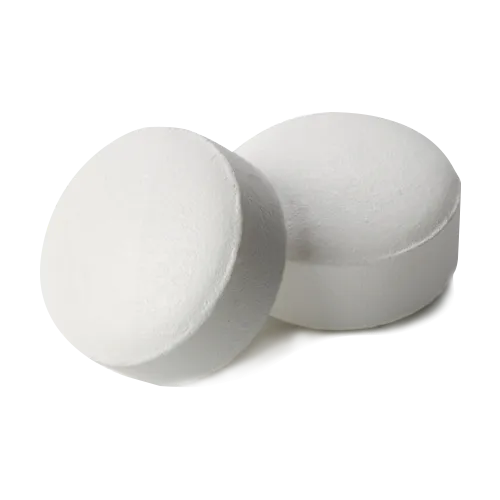Overview
Cozaar, known generically as losartan, is an angiotensin II receptor blocker (ARB) used to manage high blood pressure (hypertension), protect kidneys from diabetes-related damage, and lower stroke risk in patients with certain heart conditions. By inhibiting angiotensin II, Cozaar relaxes blood vessels, reducing blood pressure and enhancing blood flow. It is available in tablet form for convenient daily use.
Key Benefits
- Blood Pressure Management: Lowers elevated blood pressure, decreasing risks of heart attacks and strokes.
- Kidney Safeguard: Protects kidneys in type 2 diabetes patients with proteinuria.
- Stroke Risk Reduction: Minimizes stroke likelihood in those with hypertension and left ventricular hypertrophy.
- Good Tolerability: Fewer instances of cough compared to ACE inhibitors.
Unique Properties
Cozaar selectively blocks angiotensin II effects without affecting bradykinin breakdown, reducing side effects like persistent cough seen with ACE inhibitors. It also provides notable kidney benefits, especially for diabetic patients.
Comparison with Other Medications
Compared to other ARBs and antihypertensives, Cozaar stands out with:
- Selective Blockade: Targets angiotensin II receptors specifically, avoiding ACE inhibitor side effects.
- Kidney Benefits: Demonstrated protection for diabetic nephropathy.
- Reduced Side Effects: Lower cough incidence than ACE inhibitors.
Safety and Tolerability
Cozaar is typically well-tolerated, with common side effects including dizziness, nasal congestion, and back pain. Rare serious effects may include allergic reactions, kidney issues, or high potassium levels. Regular healthcare monitoring ensures safe use.
Indications for Use
Cozaar is indicated for:
- Hypertension: Lowers blood pressure to prevent cardiovascular events.
- Diabetic Nephropathy: Safeguards kidneys in type 2 diabetes with proteinuria.
- Stroke Prevention: Reduces risk in hypertension with left ventricular hypertrophy.
Dosage and Administration
Adults: Starting dose of 50 mg daily, adjustable to 100 mg based on response. For diabetic nephropathy, start at 50 mg, increase to 100 mg if needed.
Children (6+): 0.7 mg/kg daily (max 50 mg), adjusted per response.
Elderly: Standard adult dosing with close monitoring for renal function.
Timing: Once daily, preferably at the same time, with or without food. Food does not impact absorption significantly.
Mechanism of Action
Losartan blocks angiotensin II binding to AT1 receptors, preventing vasoconstriction and aldosterone release. This leads to vasodilation, reduced blood pressure, and lower cardiac workload. It targets AT1 receptors in vascular smooth muscle, adrenal glands, and kidneys.
Pharmacokinetics
Absorption: Rapid, with peak levels in 1–2 hours; bioavailability ~33%.
Distribution: Widely distributed, highly protein-bound.
Metabolism: Liver conversion to active metabolite EXP3174 via CYP2C9/CYP3A4.
Elimination: Half-life ~2 hours (losartan), 6–9 hours (metabolite); excreted via urine and feces.
Composition
Active Ingredient: Losartan potassium (25 mg, 50 mg, 100 mg tablets).
Inactive Ingredients: Microcrystalline cellulose, lactose monohydrate, cornstarch, magnesium stearate for formulation stability.
Side Effects
Common: Dizziness, nasal congestion, back pain, fatigue.
Rare: Severe allergies, kidney problems, hyperkalemia.
Serious: Anaphylaxis, kidney failure signs (e.g., swelling, reduced urine), hyperkalemia (e.g., irregular heartbeat) require urgent care.
Prevention of Side Effects
Follow prescribed doses, avoid potassium supplements without advice, and monitor kidney function and potassium levels regularly. Maintain consistent administration and report symptoms promptly.
Contraindications
Cozaar is contraindicated in:
- Hypersensitivity to losartan or components.
- Pregnancy (especially 2nd/3rd trimesters) due to fetal risks.
- Severe renal impairment or history of angioedema with ARBs/ACE inhibitors.
Warnings and Precautions
Monitor blood pressure, renal function, and potassium levels. Use cautiously in patients with renal impairment, volume depletion, or hepatic issues. Discontinue if angioedema occurs.
Drug Interactions
Cozaar may interact with NSAIDs, diuretics, or potassium supplements, potentially reducing efficacy or increasing hyperkalemia risk. Inform providers of all medications for management.
Overdose
Symptoms include severe dizziness, fainting, or irregular heartbeat. Seek emergency care; treatment may involve activated charcoal or supportive measures.
Pregnancy and Breastfeeding
Contraindicated in pregnancy due to fetal harm risks. Safety in breastfeeding is unclear; consult a provider to weigh risks and benefits, potentially discontinuing one or the other.
Storage
Store at 20°C–25°C (68°F–77°F) in a dry, light-protected container, away from children. Avoid humid areas; check expiration and dispose properly.
Clinical Evidence
Clinical trials confirm Cozaar’s efficacy in lowering blood pressure, reducing proteinuria, and protecting kidneys in diabetes. It shows superior outcomes in blood pressure control and kidney function versus placebo.
Conclusion
Cozaar is a reliable ARB for hypertension, diabetic nephropathy, and stroke prevention. Its selective action ensures effective treatment with minimal side effects. Follow medical guidance, monitor regularly, and adopt a healthy lifestyle for best results.




